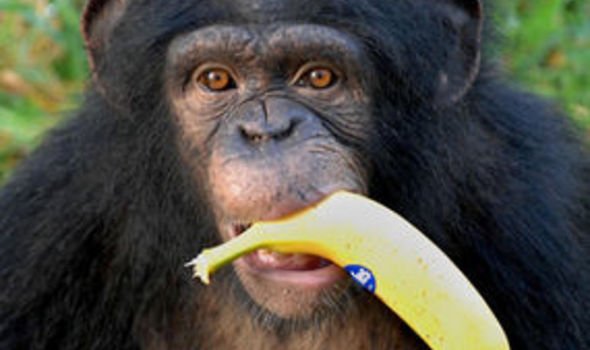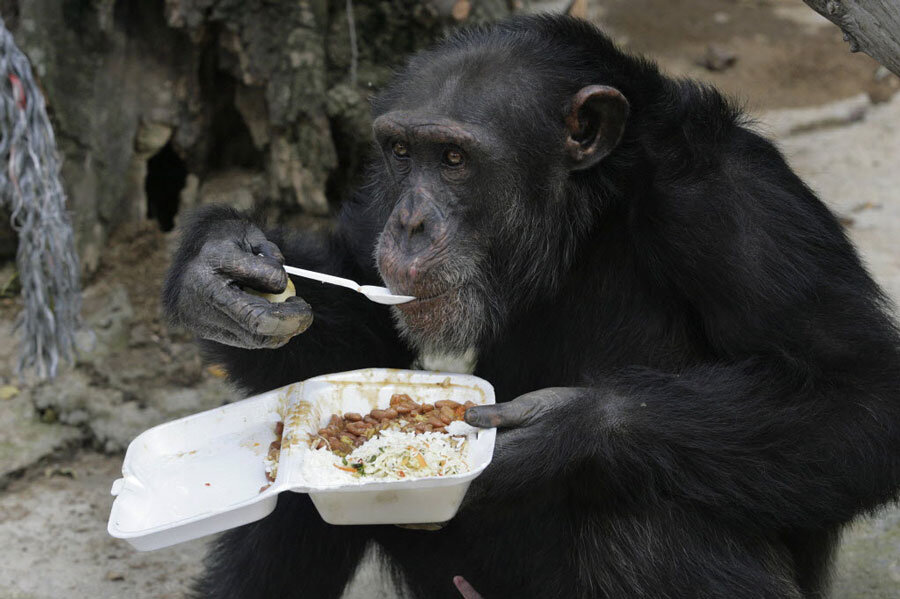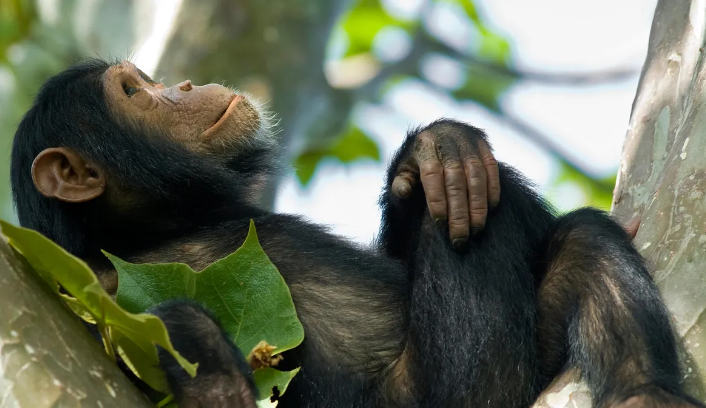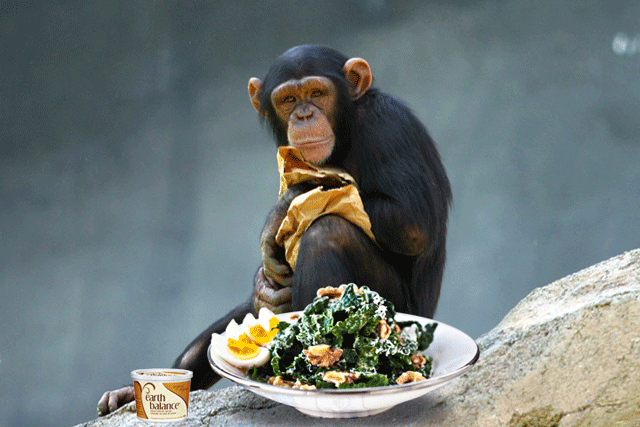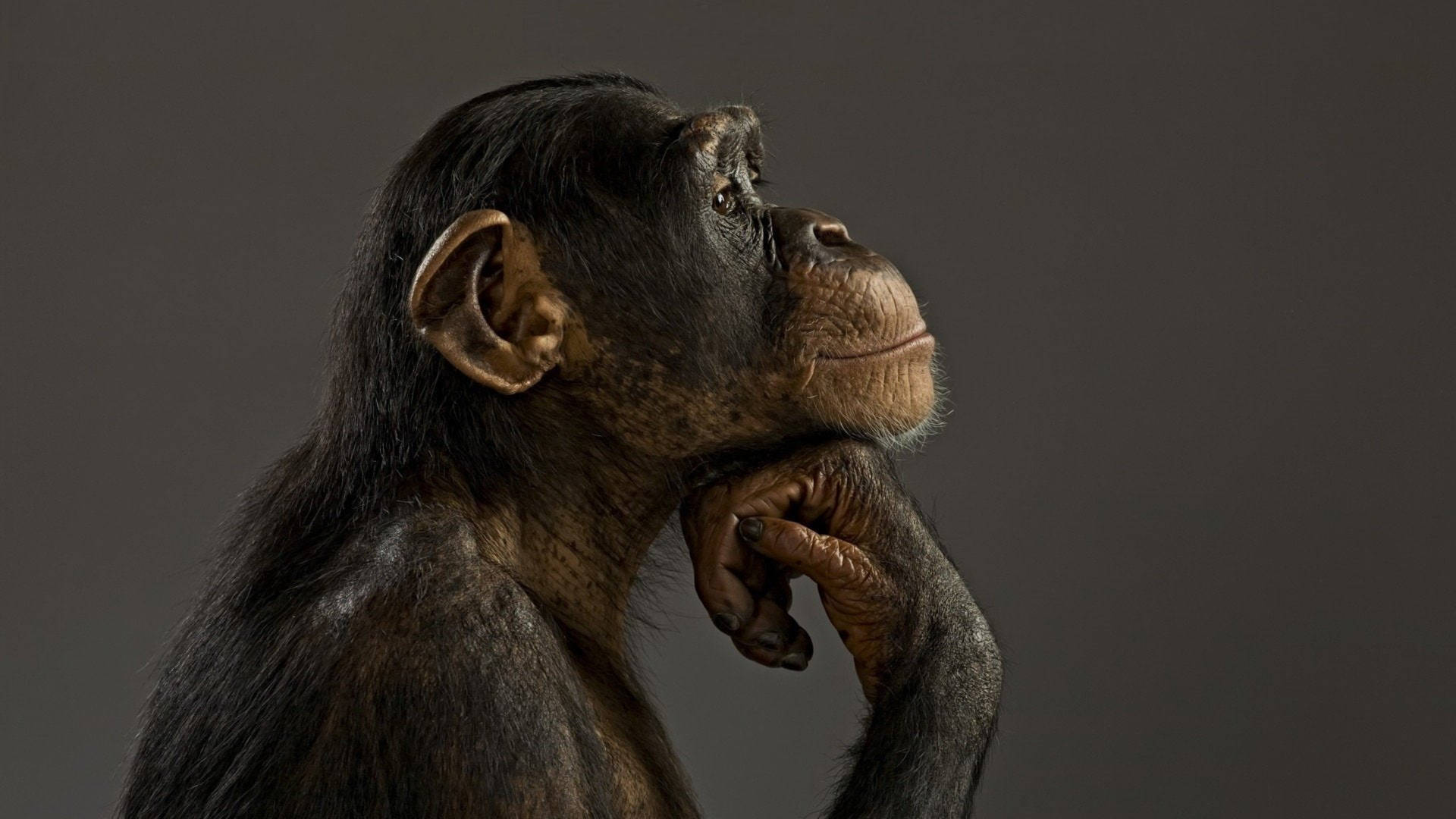The Monkey Diet humans have monkey teeth what should we eat?
Did you know that humans have monkey teeth? Yes, it’s true – our pearly whites are remarkably similar to those of our primate pals. But this intriguing fact begs the question: what should we eat to truly nourish ourselves? You might be surprised as we explore the pros and cons of adopting the monkey diet and discover how to prepare mouthwatering monkey food. So grab a banana (or two!), and let’s embark on this wild culinary adventure together!
Humans Have Monkey Teeth
Did you know that our teeth share a striking resemblance to those of monkeys? It’s true! Take a look in the mirror and examine your canine teeth – they’re sharp and pointy, just like our primate cousins. These canine teeth are designed for tearing into flesh or biting through tough plant material. Our molars, on the other hand, have flat surfaces that help us grind and chew food thoroughly.
But why do we still have these monkey-like teeth if our diets have evolved over time? Well, it turns out that even though humans have adapted to eating a wider variety of foods, our dental structure remains relatively unchanged. This is because evolution takes time – much more than the few thousand years since we started experimenting with different diets.
So what does this mean for us today? It means we should pay attention to what we put on our plates. While we may not be swinging from trees anymore (well, most of us anyway), our bodies are still primed for a diet rich in fruits, vegetables, nuts, and seeds – just like those enjoyed by our primate ancestors.
By embracing a diet centered around whole foods and avoiding processed junk found in many commercial products today, we can tap into the natural synergy between human physiology and nature’s bountiful offerings. We can nourish ourselves with nutrient-dense produce bursting with vitamins, minerals, and antioxidants – all while satisfying our taste buds with vibrant flavors!
Intriguingly enough, research has shown that adhering to an organic-based diet can reduce the risk of certain diseases associated with modern lifestyles, such as heart disease and diabetes. By choosing organically grown fruits and veggies free from dangerous pesticides or genetically modified organisms (GMOs), we support sustainable farming practices while also benefiting from higher nutritional content.
Our monkey-like teeth remind us of where we come from – creatures intricately connected to nature’s abundance. So let’s embrace this connection by adopting an eating style that honors our evolutionary heritage. Let’s choose to nourish ourselves with organic and whole foods.
What Should We Eat?
Humans have evolved over millions of years, and one aspect of our evolution is evident in our teeth. Our dental structure resembles that of monkeys, which suggests that we are naturally designed to consume a specific type of diet. But what exactly should we be eating?
It’s no secret that fruits and vegetables grown in organic soil should form the foundation of our diet. These organic foods provide essential nutrients, vitamins, and minerals necessary for optimal health. Eating organically grown produce ensures that we avoid harmful pesticides and chemicals commonly found in commercially grown foods.
On the other hand, consuming a monkey-like diet does have its drawbacks. While fruits and vegetables are undoubtedly beneficial, they may not provide all the necessary nutrients for sustained energy levels or muscle development. Including lean sources of protein, such as fish or poultry, can help fill this gap.
Preparing monkey food can be surprisingly simple! A variety of fresh fruits like oranges, bananas, apples, berries, and mangos can be enjoyed raw or blended into smoothies for a quick and delicious meal option. Vegetables such as leafy greens (spinach or kale) make excellent additions to salads or stir-fries.
When adding more fruits and veggies into your diet, initially expect some changes! Your body might need time to adjust to the increased fiber intake, which could lead to temporary digestive discomfort like bloating or gas – but fear not! These symptoms tend to subside as your system adapts.
In summary- Humans share similarities with monkeys when it comes to their dental structure, indicating an inclination towards certain dietary preferences; however, it’s important to consider a well-rounded approach by including lean proteins along with organic fruits and vegetables in order to meet all nutritional needs effectively while minimizing potential risks associated with solely relying on one type of food group.
The Pros and Cons of a Monkey Diet
When it comes to our diets, there’s been a recent trend toward looking back at our evolutionary roots. Many people argue that since humans have evolved from primates, we should eat similarly to them. This has given rise to the concept of a “monkey diet,” which primarily consists of fruits, vegetables, nuts, and seeds.
One of the main advantages of following a monkey diet is its emphasis on natural and organic foods. By consuming fresh fruits and vegetables in their raw form, we can obtain the necessary vitamins, plant-derived minerals, and antioxidants that are crucial for maintaining good health.
Additionally, eating organically grown produce reduces exposure to harmful pesticides and chemicals commonly found in commercial foods. By avoiding processed foods, you can potentially reduce the risk of developing diet-induced diseases such as obesity, diabetes, or certain types of cancer.
On the other hand, there are some concerns with exclusively following a monkey diet. One major issue is meeting all nutritional requirements. While fruits provide essential nutrients like vitamin C and potassium, they may not supply adequate amounts of protein or healthy fats necessary for proper bodily function.
Another consideration is practicality. Following a monkey diet requires careful planning and preparation to ensure balanced nutrition intake while avoiding monotony. It may also be challenging for individuals with specific dietary restrictions or conditions that require more specialized diets.
In conclusion (as per instructions), adopting aspects of a monkey diet can offer numerous benefits, such as increased consumption of fresh produce and reduced exposure to harmful chemicals prevalent in commercial foods. However, it’s essential to consider individual dietary needs when implementing any radical changes in one’s eating habits.
How to Prepare Monkey Food
Preparing a diet that mimics what monkeys eat in the wild can be an exciting and nutritious choice. But how exactly do you go about preparing monkey food? Here are some tips to get you started.
It’s important to note that the foundation of a monkey diet consists primarily of fruits and vegetables. These should make up the majority of your meals. Choose a variety of fresh, organic options to ensure you’re getting all the necessary nutrients.
Next, consider incorporating nuts and seeds into your menu. Monkeys love these crunchy treats, and they provide essential healthy fats. Whether it’s almonds, cashews, or chia seeds – they’re all great choices!
Additionally, legumes such as lentils and chickpeas are excellent sources of protein for your monkey-inspired meals. A couple of cooked meals a week is okay! The meals can be cooked in different ways – boiled, roasted, or even sprouted for added nutritional benefits.
Another key component is leafy greens like kale or spinach. These nutrient-dense foods offer vitamins and minerals crucial for overall health.
To add some excitement to your monkey food repertoire, experiment with different textures by blending some ingredients into smoothies or creating colorful salads with vibrant fruits and vegetables.
Don’t forget about hydration! Just like humans need water throughout the day, monkeys require constant access too. Make sure to drink plenty of pure spring water alongside your delicious meals.
Preparing monkey food involves focusing on whole plant-based foods such as fruits, nuts/seeds, vegetables, legumes, and leafy greens while ensuring hydration remains a top priority.
What to Expect When Eating Monkey Food
When it comes to incorporating more natural foods into our diets, some people have turned to a diet inspired by our primate relatives. But what can you expect when diving into the world of monkey food?
First and foremost, one thing you’ll notice is an abundance of fruits. Monkeys are frugivores, meaning their diet primarily consists of fruits. So if you’re looking to increase your fruit intake, this might be the perfect diet for you.
Not only will this boost your vitamin and mineral intake, but it can also help satisfy your sweet tooth in a healthy way. Fruits are not only delicious but packed with essential nutrients that support overall health.
Another aspect of the monkey diet is eating organically. Monkeys consume fresh foods straight from nature without any additives or preservatives, so adopting this approach means eliminating processed and commercial foods from your meals.
By avoiding these artificial ingredients found in many commercial products, you may start noticing improvements in digestion and increased energy levels.
However, it’s essential to keep in mind that while a monkey-inspired diet has its benefits, there are also potential drawbacks. For instance, monkeys do not consume a significant amount of protein compared to humans, who require more substantial sources for optimal health.
If you decide to follow a monkey-based diet plan long-term, ensure that you incorporate other protein-rich foods, such as legumes or nuts, into your meals for balanced nutrition.
Think About It
Our human teeth may resemble those of monkeys, but that doesn’t mean we should be eating precisely like them. While incorporating more fruits and organic foods into our diet can have numerous health benefits, it is vital to approach any dietary changes with caution.
While a fruit-based diet may seem appealing due to its natural and nutritious qualities, it is crucial to consider the potential drawbacks. Our bodies require a balanced mix of nutrients from various food sources for optimal functioning. Completely eliminating certain food groups or relying solely on fruits can lead to deficiencies in essential vitamins and minerals.
Additionally, while commercial foods often get a bad rap for being processed and unhealthy, not all commercially available options are equal. It’s essential to make informed choices when selecting packaged foods by carefully reading labels and understanding what ingredients are included.
Finding the right balance between consuming fruits, organic foods, and other nutrient-rich options is critical. Consulting with a healthcare professional who can advise fruitarians or an alternative natural foods dietitian can provide personalized insight based on individual needs and goals.
Remember that everyone’s body is unique, so what works well for one person may not work as effectively for another. Experimenting with different dietary approaches while listening to your body’s signals will help you determine what works best for you in terms of nutrition, energy levels, and overall well-being. By eating the correct diet for the shape of your teeth may eliminate many symptoms of the disease.
So let us embrace the similarities between humans and monkeys without forgetting our own unique nutritional requirements. By making conscious choices about what we eat and striving for a varied and balanced diet that includes plenty of fresh produce along with other wholesome ingredients, we can nourish ourselves in a way that supports optimal health.
While emulating our primate friends’ eating habits can offer numerous advantages like increasing fruit consumption and reducing reliance on processed foods – which studies suggest could lead to certain diseases – it’s crucial always to consult with healthcare professionals before making any major dietary changes. Incorporating aspects of the monkey diet may enhance overall well-being but remember balance is key; don’t neglect essential nutrients like protein necessary for human functions!
